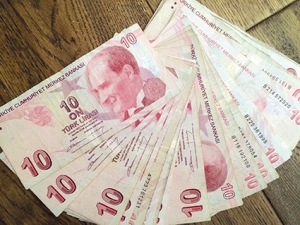Is the Turkish Economy in Trouble?
This July, Turkey has been facing 15.4% inflation, a very high rate for an economy in trouble. For months, the country has been going through multiple crises. While everyone points to the political issue, related to the coup attempt in July 2016 and its consequences for the Turkish democracy, the local economy must be looked at carefully: as it has been going downhill for a while now.
First, the monetary crisis. The Turkish Lira is falling, having lost its value against Euro and Dollar. As a result, inflation has been reaching on average 10% in 2018. The Lira has lost more than a fifth of its value against the Euro and Dollar in less than seven months, and the deficit is growing by the day. Prices are up and the crisis seems all the more dangerous as it affects the prices of daily essentials like potatoes, tomatoes, and gas.
So, why is the Turkish Lira collapsing? First, the Central Bank lacks freedom, which leads to a freeze in economic mechanisms. President Erdogan strengthened his control over the monetary policy.
“Not only the Central Bank but all institutions and individuals are under the sway of Erdogan. We don't have freedom, nor can we make the simplest decisions without his permission," said economist Atilla Yesilada. "If the central bank was not controlled by Erdogan it would have reacted at least two years ago, when inflation started rising, by raising interest rates."
And that is the problem. The Central Bank, supposed to lead the monetary policy, can do nothing. However, generally speaking, economists consider that interest rates are a key tool to stabilize a currency. But President Erdogan ignores these recommendations and keeps base interest rates steady, no matter how the economy is doing.
The fall of the currency has also been reinforced by geopolitical uncertainty at the Turkish borders, in particular the Russian military actions in Syria and its political instability.
As a result, economists agree to say that there is an economic negative outlook in Turkey. Investors worry about the independence of the Central Bank, and the credit quality of Turkish Banks has collapsed. The country is weakly rated by international agencies and the credit rating expectations are down. The three major credit rating agencies (Standard and Poor’s, Fitch and Moody’s) reported that the Turkish grade for sovereign bonds is now a BB one, essentially “junk bonds”. It means that money investors will be more likely to buy reliable sovereign bonds than Turkish ones.
But for President Erdogan, Turkey will soon become "one of the ten largest economic powers in the world," as he promised after the swearing-in for his current term. Does he rely on his son-in-law to rescue the Turkish economy? Appointed as Minister of Finance and Treasury, Albayrak is considered a relatively inexperienced politician who has simply been given a key position by his father-in-law. Will an inexperienced pilot be able to fly the plane? The answer remains to be seen. There is no doubt that an economic crisis would be a deadly blow to Erdogan’s power.
By Antoine Dewaest











